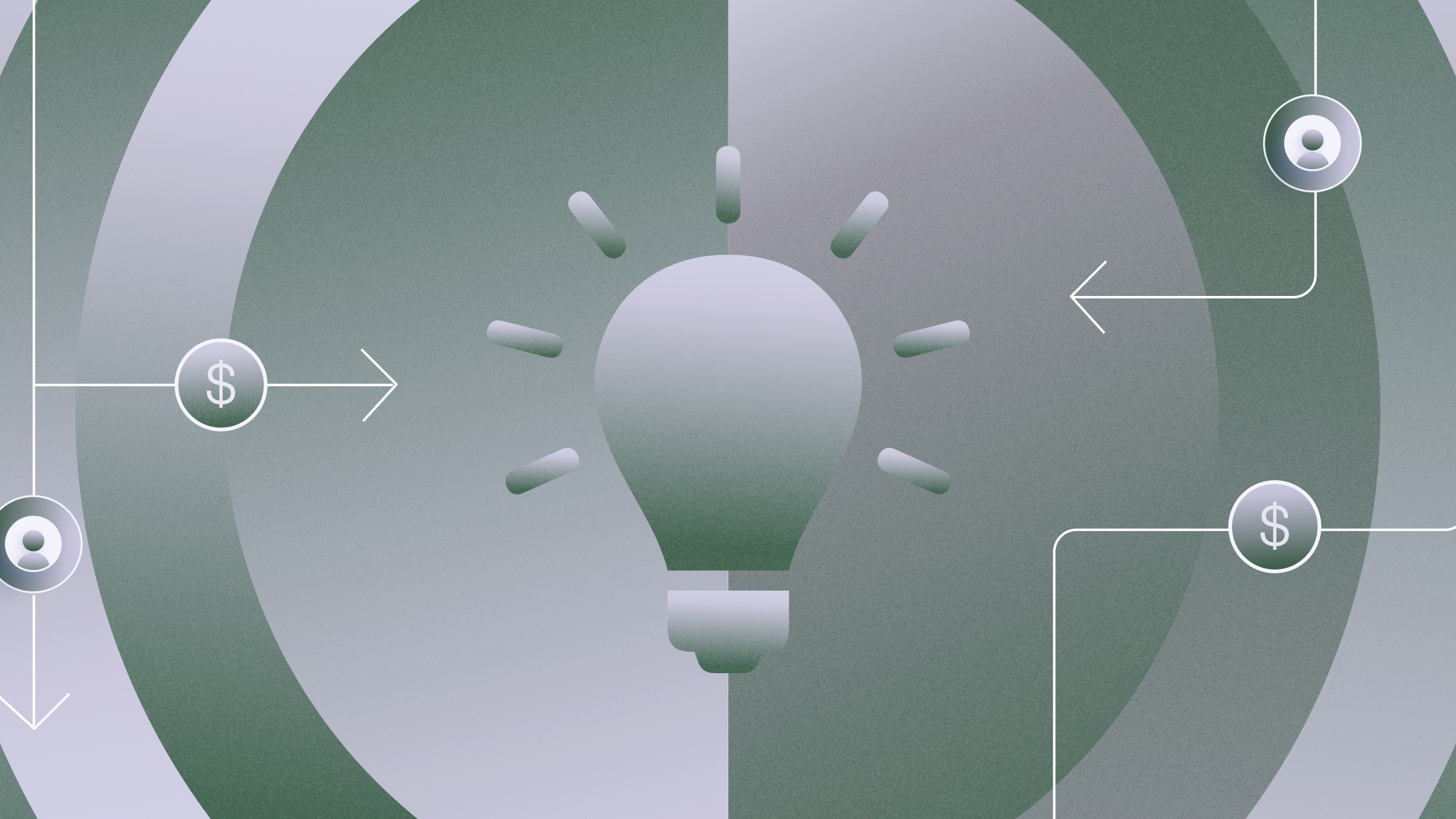Hunter Walk & Satya Patel: Think Seed Like Homebrew
Listen on Apple Podcasts, Spotify, or your favorite podcast app.
This week we’re having tea with Hunter Walk and Satya Patel, Partners at Homebrew. Prior to Homebrew, Hunter led consumer product management at YouTube and managed product and sales for Google’s AdSense. Satya was previously VP Product at Twitter and joined Google in 2003 to work on AdSense. Highlights from Series Tea with Hunter Walk & Satya Patel This interview has been lightly edited for length and clarity.
Highlights from Series Tea with Hunter Walk & Satya Patel
This interview has been lightly edited for length and clarity.
Both of you have a product background. How do you think that drives your decision-making when it comes to investment?
HUNTER: It's how we met. We overlapped at Google ‘03 to ‘07 on the AdSense team. When we started Homebrew, we felt we knew how to be helpful from an investment perspective. And Satya had gone back and forth between venture and product so he practiced that already. What we had to guard against was attracting founders who wanted us to be their product VPs. We can make sure you have access to great product minds. We can tell you some of the things that we did. We have a really good sense of the heartbeat of building. But the attraction shouldn't be, “you de-risk your product by getting Homebrew.” You de-risk your product by having a vision of where you're going, a framework of how to get there, and then a great team to help you do it.
SATYA: It makes us comfortable with product risk. When we make an investment at the seed stage, we're trying to check the founding team, the market opportunity, and the product vision. Having come from product backgrounds, we really appreciate that most products rarely end up where they start.
These are people we want to support, not just with capital but also sweat and reputation. We're generally picking a team that has strong founder market fit. The market is really important in terms of timing. We want to have alignment around the product direction but we're comfortable with that changing after we make an investment, based on what the team is learning from its target customers.
You said you often invest pre-product, so are you often pre-seed investors?
HUNTER: We see ourselves as seed phase investors, meaning you're somewhere between your first dollar raised and the last dollar raised that's going to get you to your Series A. What we really look for is if the founders have done enough work to convince themselves that this is what they want to spend the next decade of their career on.
So somebody who comes in and says, "I'm building a marketplace. I've never built a marketplace before but here's my deck. I haven't done any work other than making the deck and I'm ready to raise a pre-seed," we'd probably wait for the institutional seed.
But if that same person had been like, “I went and I bootstrapped some interesting tests to see if I could generate supply side demand and some liquidity in the marketplace and now I'm ready to start building it out,” I'd be like, "Okay let's talk." Capital then becomes something that's going to help you take advantage of an insight you have or a hypothesis you're working on.
You've been doing this since 2013. As things have changed, have you adapted significantly?
SATYA: We've always wanted to be the investor of record, the accountable party at the seed stage. We're leading seed rounds for a small number of companies each year, so that we can spend the majority of our time working with those companies, as opposed to looking for the next investment. We need to concentrate, not just our time or energy or reputation, but our dollars.The biggest change, in staying consistent with that strategy, is writing slightly larger checks than when we started.
HUNTER: Multi-stage is great, we work with them all the time. There's something special about the seed phase, where we believe practicing in it 100% of your time makes a difference. We really care about exit value, quality of company building, not velocity of growth for the sake of growth.
We had a notion of our product being worthwhile for at least a subset of entrepreneurs. It's more a question of communicating that relevance: why we believe what we do is important to entrepreneurs and getting their feedback. They are our customers. We continue to look ahead and think, what should we do in fund four to make sure that our product is relevant to the next generation of entrepreneurs?
You said you don't want to be the VP of product but also are very involved. What is foundational to a company's success and how do you help with that?
SATYA: There's three fundamental things that a startup needs to do. It needs to build a product, distribute that product, and build the team that's going to build and distribute the product. We focus our energies in those three areas. That doesn't just mean hiring and recruiting. That means thinking about culture and values, thinking about compensation and performance management. And then lastly, go-to-market: everything from pricing, partnerships, marketing.
But part of being the accountable investor at the early stages is that we're working in service of the founders. We don't dictate where we can or can't be helpful. We want them to turn to us for assistance in any of the areas that they're thinking about.
HUNTER: It's not just about the company. it's about the founders themselves. We really want them to be longterm leaders of their company. So it's partnering with them through those first three to five years where we put in most of our sweat and reputation.
It's not just about time. It's about two things that we really value: context and trust. So context is, you're not inside the org chart, you're not living with that company day to day. How do you stay close so when somebody asks you a question, you give them advice in the context of who they are, not just a generic blog post URL?
And then trust is so important. That starts with the first 90 days after we closed an investment. Do we start living up to the expectations we set with the founders when we were selling ourselves?
Do you have a checklist of what you try to deliver in the first 90 days?
SATYA: It starts actually during our diligence process. We don't do a formal partner meeting or pitch. We think of each conversation with the founding team as helping us understand the opportunities and challenges for the business. So that post-investment, we have clarity around where we should be focused. What we're trying to do post-investment is uncover the key risks in the business. What are our plans for how to mitigate them so that we have the opportunity to play on? Are we putting in place the right people and processes to scale for the long term? Do we know what milestones we need to achieve in order to raise the next round of capital?
We use board meetings to take a step back from the day-to-day to focus on those larger issues and build a cadence around that. That’s where we do discovery and mutual thinking around important issues that are facing the company, which build upon the trust and context that Hunter referred to.
HUNTER: Sometimes it just comes down to prioritization. Most people have a list of too many things to do. Early on, it's kind of paring back to really focus on the core of what you need to know now and why? How are we going to learn that? What's the simplest, highest quality way to get that information? More so than adding things to a founder's list, we're crossing things off.
Sometimes entrepreneurs do party rounds and no one has a meaningful stake at seed, yet the valuations are higher. Should entrepreneurs favor lead investors that play a more meaningful role?
HUNTER: Founders deserve investors who are going to match what they need. We bias towards mission-driven founders over people who are just pure operators. Plenty of entrepreneurs are focused on operating. Lots of those companies go on to be successful. We might not be the best investor for those. If somebody is an excellent operator and solving a problem that they care about or have insight in, then we might be the right fit.
We've taken the attitude that our participation in the ecosystem will hopefully grow the pie. Then we can get our share versus it being some scarcity game. We're incredibly competitive, incredibly intense about wanting to participate in companies that are successful. But we also care a lot about the people and the work we do. We are willing to exclude ourselves from opportunities if we don't think we're the right fit.
What does ‘mission-driven’ mean: helping the world or just that the entrepreneurs are very passionate?
HUNTER: Do they have some story behind the why? For some it's vocational, for some it's academic, generational, demographic, or cultural. It's important that a founder believes their company is going to make the world a better place. It's important for them to be deliberate about the values and culture that do that. But I also don't want to be overly prescriptive about, well if you're not curing cancer or you're not solving hunger then you're kidding yourself, right?
SATYA: Does this founder or founding team have firsthand experience with the pain that they're addressing? That intimacy with the pain and as a result, the insight on how to address that pain, is indicative of a mission. We're not talking about a mission in the sense of social good necessarily. There's plenty of people who come up with brilliant businesses where they are the complete outsider. We back those kinds of founders on occasion too. But we feel there's the best mutual fit when the founders have experienced the pain firsthand and really have an insight derived from experiencing that pain.
Do you take cold contacts?
HUNTER: We love cold contacts. I always say a good cold email is better than a lukewarm intro. If you don't have a warm intro, the best thing to include are answers to these types of questions we just asked. What problem are you solving? Why does it matter to you? And what have you learned or know about that other people don't? We respond to every cold email at least once.
Is there a certain size of email that you think works the best?
HUNTER: You don't need to communicate everything but at the same time you don't need to ask permission to send a deck. Attach the deck. It's a sales email. You're just trying to, in an authentic way, tell us why you want to spend some time together. We'll get back to you.
SATYA: I would recommend to show, don't tell. We come from product backgrounds so even if it's the most bare bones wireframes or a product walkthrough, that goes a long way.
HUNTER: The most exciting companies, from an investment perspective, feel like they are going to happen one way or another. Not that this company is only going to exist if Homebrew blesses it. The difference between “I'm going to do this if you tell me I should” and “This is happening without much resources” is very compelling. That's that's what gets us on board.
What are the qualities of a good warm intro?
HUNTER: Some personal experience to vouch for the founder. Some explanation for why you appreciate this person, whether you've invested in them, worked with them, managed them, or knew them in college. It's important when somebody adds their own context for why this person is interesting.
The more thoughtful the introduction, the easier it is for us. The more that a founder can look for a mutual who can speak to some of those things, as opposed to just forward an email, the better it is for both sides.
SATYA: I like it when either the person introducing us or the founder expresses why they think we might be a good partner for them as well. We really think about mutual fit.
Are you telling companies to go raise Series As earlier, or you think there's a certain stage you should attack first?
HUNTER: We've been trying to slow down Series As. What we're constantly doing with founders is tracking, where do you want to be when you go and raise? What does the market want to see? If the market is ready to fund you, does it make sense to do it now, or does it make sense to play on and get rewarded for the progress you make? Each milestone you hit that de-risks the company or increases another achievement, the market will respond to. Sometimes, raising successive rounds as quickly as possible, actually isn't the best path. Sometimes you want to be very deliberate and bet on yourself a little bit further.
SATYA: Every time a founder and a company raise money, they're taking on more risk. They're setting the bar higher, they're reducing their optionality and the expectations are increasing from the people around the table. The best Series A stories are built off of founders who feel they've reduced risk in the business so they can balance taking on the risk of more capital. The best Series A decks are built from the backs of a great business, not from market data around what investors are looking for. We focus on helping founders get to the point where they themselves have enough conviction about what they've learned during the seed phase that they're willing to take on the risk of raising a Series A.
HUNTER: By the Series B you have to be understood by the market. You can still be misunderstood by 95% of Series A venture funds and get a very good round together. Our goal is to make sure that if you are in an area that is well understood, like SaaS, that you're checking off the boxes that most SaaS investors are going to want to understand.
Is there a particular revenue or growth metric for SaaS businesses to hit to get a good Series A?
HUNTER: It splits very specifically into two categories.
- One is the FOMO categories. You are building in an area that is going to have one or more multi-billion dollar winners. In those cases the teams that get rewarded, at the Series A, aren't necessarily the ones with the best metrics, it's the ones with the package that makes it look they are likely to be the winner. That can be a combination of metrics, team, and technology/IP. If you're operating in a FOMO category, you go to market when you're ready to tell the story of why we win this big market that everybody believes is valuable.
- If you're in a market that's a little more crowded, like the HR space, the best thing is to be growing faster than the reference companies before you. So it's if Slack grew this fast and we're growing faster than Slack did in year two or whatever, that will pop eyes. Otherwise you have to at least clear the bar on the metrics that a Series A investor, who maybe makes two investments that year, is using to screen deals. Your competition in that case, isn't literally the software companies that you were selling against in the market. Your competition are the 15 companies that he or she is going to see on Monday, Tuesday of that week and the 15 that they're going to see Thursday, Friday after you. There's no one number I'd give you today that says, well, so long as you're over a million ARR you'll get a Series A down. Because as every company gets better and better that number goes up too.
Do you guys invest in solo founders?
SATYA: We invest in solo founders but think that being a solo founder is not ideal. Starting a company is damn hard from both an emotional and skills standpoint. We also think it's a pretty important signal because of how important selling is. If you're not able to convince one other person to join you in your cause, either you're not selling the story appropriately or maybe there's something wrong with the story. Often, a solo founder has a story that we find particularly compelling and we back them as well. But the majority of teams we back are teams and not individual founders.
HUNTER: Two things I'll add to that. One, it doesn't have to be a co-founder equal relationship. Sometimes there's a dominant co-founder that they've assembled the beginning of the founding team, all of whom feel like owners of that business and not employees. The second thing is when we talk to people who are solo founders, sometimes we just ask them about it. It's a point of discussion and understanding.
What type of impression does it leave on you if a company has gone through an accelerator?
SATYA: We just ask that people are deliberate around why they decide to go through a particular accelerator. What we're trying to understand is why did you choose this accelerator? Did you get what you wanted to get out of it? On the surface, I don't think there's a particular bias against accelerators. Because that would be saying we're biased against investors, which we clearly aren't being investors ourselves.
HUNTER: The two things that I care most about are, did they do a good job screening? That means that the folks that went through the accelerator have some set of qualities that are going to make them an interesting conversation for me. And then second is, do they have a competitive advantage coming out of that accelerator? The network that they now have access to, their peers from that group, selling into that accelerator's base. Does it spit them out in a way that gives them some ongoing advantage that can compound over time?
If a company has raised their first round of capital through equity crowdfunding, is that something that is a turnoff?
HUNTER: It's becoming an increasingly mature and interesting mechanism. Especially when people tap into their community or customer base and are getting a group involved in the company that is likely to play some ongoing role in its success. If it was just sort of trying to scrap together some dollars, great. There's certainly parts in a company's life where they just need believers, right? The ones that we look at most appealingly would be as part of a strategy to accomplish something more so than just raise capital.
SATYA: It's totally appropriate because not everybody has access to the traditional sources of capital for us to see equity crowdfunding as a source of capital. The problem would be if the founder has done something that's poisonous to the cap table or to the structure of the company. Because that says something about that founder's decision making and whether she or he is going to continue to make good or bad decisions about what's fundamentally important.
Do you invest in startups abroad? Has COVID changed things?
HUNTER: We've extended our geographic range as we've extended the confidence that we will support entrepreneurs the way we want to. What we look for is an area we know or if it's a local regulatory environment or situation where getting local expertise on the cap table would be great. Great companies are being built everywhere.
SATYA: We've always been comfortable investing without having met founders in person. We've been doing that from the very first fund. COVID didn't change anything from our perspective when it came to that.
Want more? Listen on Apple Podcasts, Spotify, or your favorite podcast app.
Related reads

Bridge rounds, SAFEs, and venture debt: How to stack capital without boxing yourself in

How emerging managers can win LP trust — and what founders can learn

Is a merchant cash advance right for my ecommerce company?
